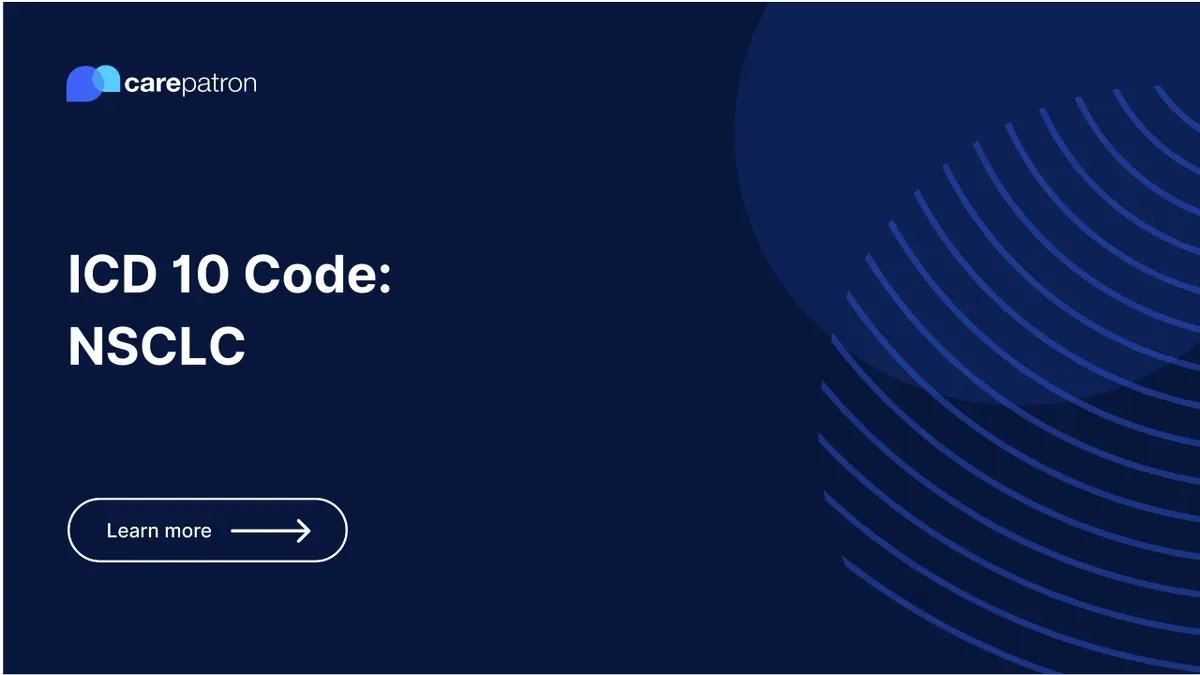
NSCLC ICD-10-CM Codes
Find up-to-date information on NSCLC ICD codes for 2023. The guide covers codes, clinical descriptions, and more.
Use Code
Commonly asked questions
The main subtypes of NSCLC are adenocarcinoma, squamous cell carcinoma, and large cell carcinoma.
Risk factors for NSCLC include smoking, exposure to secondhand smoke, exposure to certain toxins, and family history.
NSCLC treatments can include surgery, radiation therapy, chemotherapy, targeted therapy, and immunotherapy. Treatment plans are often individualized based on the type and stage of cancer and the patient's overall health.
EHR and practice management software
Get started for free
*No credit card required
Free
$0/usd
Unlimited clients
Telehealth
1GB of storage
Client portal text
Automated billing and online payments
